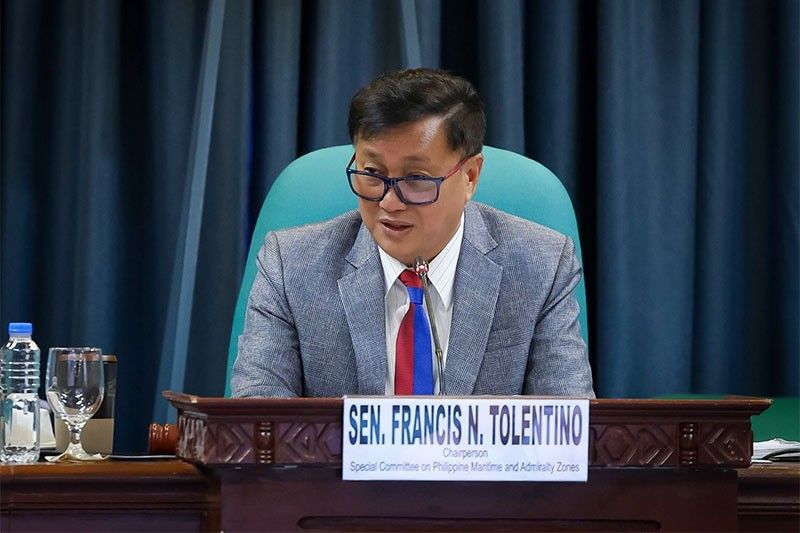
Upgrade to High-Speed Internet for only ₱1499/month!
Enjoy up to 100 Mbps fiber broadband, perfect for browsing, streaming, and gaming.
Visit Suniway.ph to learn
MANILA, Philippines — President Marcos has directed newly appointed Customs Commissioner Ariel Nepomuceno to intensify border protection and strengthen the country’s fight versus smuggling.
Nepomuceno officially took the helm of the Bureau of Customs (BOC) on Monday. He succeeded Bienvenido Rubio, who was appointed by Marcos to the position in 2023.
“The marching order (of the President), first of all, is to protect, strengthen border protection and fight smuggling… to fight smuggling more vigorously,” Presidential Communications Office Undersecretary Claire Castro told reporters yesterday.
Castro also disclosed that aside from Rubio, five more BOC officials and personnel, including deputy commissioners and directors and collectors, have been removed. She did not name the other BOC employees fired.
Asked why Rubio was replaced, Castro said the President wants to provide better service to the public.
“The President only wants to be loyal to the country, fight smuggling and of course, be transparent in the collection of revenues,” Castro said.
Asked whether the President was not satisfied with Rubio’s performance, Castro said, “We cannot say that and whatever reason the President has for making such decision it is still for the improvement of service to the people.”
Asked whether the other officials removed were tagged in anomalies within the agency, Castro said, “we cannot say that.”
“The only purpose of the President is there is a continuing performance evaluation, everybody is on notice; everybody is on probation. We have to work better for the country and for our fellowmen, Filipino people,” she said.
Hardly had Nepomuceno warmed his seat, the BOC announced yesterday its confiscation of over P34 million worth of misdeclared agricultural products.
Declared as assorted food items such as mantou, egg noodles and kimchi, the shipment – kept in six 40-foot containers from China – was later found to carry onions and mackerel with an estimated value of P34.2 million.
“This operation reflects our strong commitment to protecting the local industry and ensuring that our port remains a frontline defense against agricultural smuggling,” district collector Alexander Alviar said.
The operation was carried out jointly with the Department of Agriculture (DA)’s Inspectorate and Enforcement Office and the Bureau of Plant Industry.
The DA said it is preparing to file charges against two consignees of the shipment, in what officials said could be the first major test of government resolve to enforce the newly enacted Anti-Agricultural Economic Sabotage Act.
According to the DA, the shipments were consigned to two firms: Latinx Consumer Goods Trading, for two containers of red onions; and Lexxa Consumer Goods Trading, for four containers—one containing yellow onions and three with frozen mackerel.
“We intend to use the full force of the Anti-Agricultural Economic Sabotage Act against these companies, including those who may have hired them to ship these onions and fish. We will pursue all legal remedies to bring these illicit traders to justice,” said Agriculture Secretary Francisco Tiu Laurel Jr.
Under the law, smuggling or hoarding of agricultural commodities valued above P10 million constitutes economic sabotage. Offenders may face life imprisonment and fines amounting to five times the value of the smuggled goods.
Microbiological tests conducted by the BPI on previously seized onions from the Paco Public Market revealed E. coli contamination. Earlier confiscated vegetables also tested positive for heavy metals.
DA Undersecretary for inspectorate and enforcement Carlos Carag said the growing number of confiscations of smuggled goods is a result of heightened vigilance and strengthened coordination between the DA and the BOC.
BPI director Gerald Glenn Panganiban added that the continued misdeclaration of agricultural imports poses significant threats to food safety and national biosecurity. — Marco Luis Beech

 8 hours ago
1
8 hours ago
1



